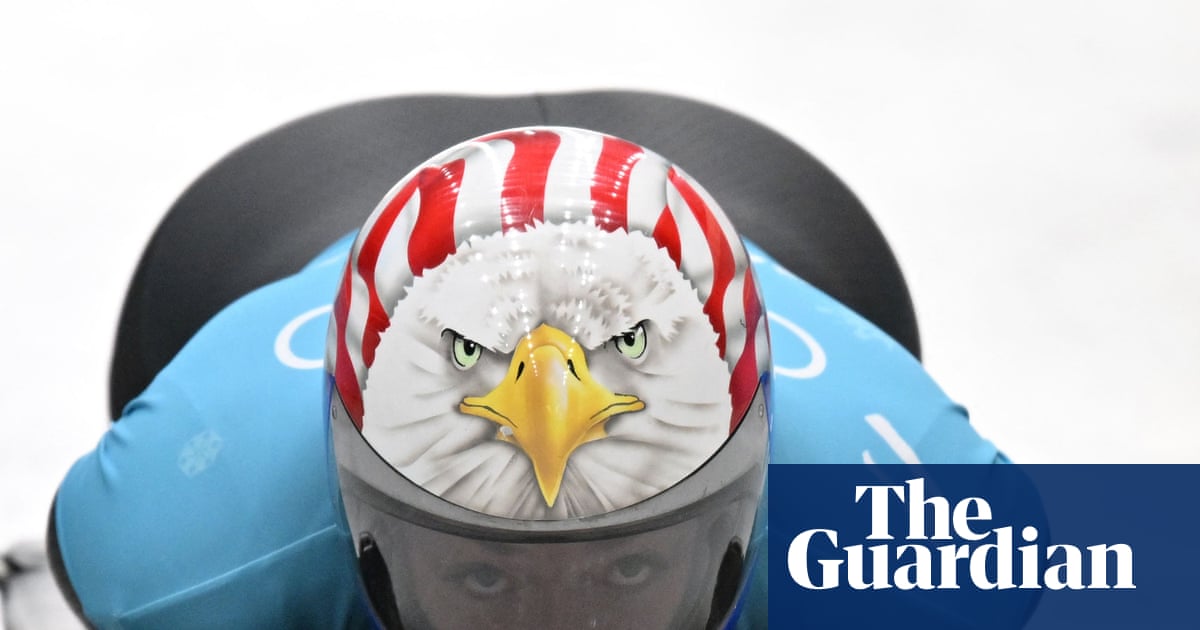Salman Rushdie believes AI will not be a threat to authors until ChatGPT can write “a funny book”. His faith in human over synthetic creativity may hold some truth in the literary space. But on our screens – from film, art and satire to the algorithmically turbo-charged, factually opaque, monetised churn of the 24/7 news cycle – AI is already making us laugh.
Deepfakes – synthetic audio and video of people doing and saying things they never said or did – are the chief comedic disruptors in a suite of increasingly persuasive AI tools shaping the post-truth reality envisioned by the Microsoft engineer Eric Horvitz, where fact and fiction are indistinguishable. In eight short years, deepfakes have risen from cultural outlier to mainstream meme, embodying the futurist Roy Amara’s Law: we overestimate the effects of new technology in the short run, but underestimate its long-term impacts.
And with some experts predicting 90% of online content could be AI-generated by 2027, the extent to which synthetic replicas will change how we trust and interact with on-screen depictions of real people is now an urgent question for creators, policymakers and viewers.
When deepfakes emerged in 2017 as incel-produced nonconsensual porn, the alarm they generated was justified. But as soon as deepfakes started being used a political tool, concerns snowballed into panic. Philosophers labelled them an “epistemic threat” to evidentiary systems; corporations mounted costly (and unsuccessful) detection programs; and pundits warned of an “info-apocalypse”, in which a convincing deepfake of a world leader could start world war three. Less dramatic but equally chilling was the prediction that the mere awareness of deepfakes would collapse civic trust altogether. In 2018 Jordan Peele made a prophetic deepfake of Obama urging viewers to rely on credible news sources, lest we become a “fucked up dystopia”.
Cut to 2025, and satirical deepfakes are part of the news cycle. Shortly after attending Pope Francis’ funeral, US president Donald Trump posted a viral deepfake of himself in papal regalia. In response to Doge cuts to public services, a deepfake of Trump fellating Elon Musk’s foot appeared on a DC government lobby screen. Following Trump’s declaration he would transform Gaza into a Middle Eastern “Riviera”, a satirical deepfake appeared on Instagram, showing Trump sipping cocktails with Israel prime minister Benjamin Netanyahu in an AI-slop fantasy of Gaza as a beachside resort, full of gold Trump statues and happy Palestinian children. And just last month, South Park’s deepfake of Trump with a micro-penis elicited an official rebuke from the White House.
Deepfakes in fact have been disrupting democratic processes since 2018, when Indian nationalists circulated a deepfake porn video of the journalist Rana Ayyub, in an attempt to silence her. But the elevation of deepfake satire as a weapon in mainstream politics is a more recent trend. During the 2024 US election campaign, Trump posted absurdist deepfakes of Kamala Harris addressing a communist rally and admitting she was a DEI hire. A surreal Republican attack ad showed a deepfake Joe Biden winning the presidency and its AI-imagined consequences: war with Taiwan, bank closures and US cities destroyed by crime. Echoing warnings that the rise of deepfakes could be used to discredit authentic recordings, Trump falsely accused Harris of deepfaking her crowd sizes.
And AI “slopaganda” is coming for Trump too. Viral platforms Make AI Great Again and Global Presidents are generating billions of views for videos featuring a panoply of strongmen – from Vladimir Putin and Volodymyr Zelenskyy to Kim Jong-un – emasculating Trump in slapstick pranks. (That Chinese leader Xi Jinping is largely absent from these clips has prompted speculation about their origins and goals.)
In stark contrast to this perniciously populist deepfakery, progressive artists and activists are using AI counterfeits to provoke, astonish and speak truth to power. Stephanie Lepp’s Deepfake Reckonings imagines a “morally courageous” US justice Brett Kavanaugh; and Kendrick Lamar’s The Heart music video deepfakes him as OJ Simpson and Kobe Bryant, to destabilise assumptions about black identity. Compil des Bleues inserts the faces of France’s soccer stars on to the bodies of its female World Cup team, to highlight the women’s equal athleticism; while the Lincoln Project’s posthumous deepfake of Trump’s father Fred labels his son “a fuck up”, “trash” and “a disgrace”; declaring “I’ve been dead for 30 years and I’m still ashamed of you.”
We thought Donald could use some words of encouragement from his father Fred, who was such a strong supporter of his career. Fred’s angry he handed over his empire to a son so “low-rent” he even lost money running a casino & will be lucky to keep his dumb ass out of prison. (AI) pic.twitter.com/5gXtKKHJmS
— The Lincoln Project (@ProjectLincoln) February 16, 2024Professional film-makers are also manipulating deepfakes to play with the truth. Black Mirror’s Joan is Awful depicts a matryoshka-like dystopia where characters are deepfakes of deepfakes; Sassy Justice by the South Park creators portrays Trump as a corruption-slaying TV journalist; and the Polish biopic Putin delivers an unflinching AI portrait of its titular hero. The documentary Welcome to Chechnya deploys deepfake masks to protect its persecuted gay subjects; while A Life Uncharted uses real audio of its deceased protagonist, Thunderbirds creator Gerry Anderson, to construct a candid deepfake interview.
Deepfakes come with very real risks that demand urgent regulation: cybercrime, corporate fraud, intimate image-abuse and political disinformation among them. But it is vital that AI’s escalating persuasive power is regulated without stifling creativity and innovation.
On this, at least, film-makers and big tech are aligned. When xAI unveiled its new Grok AI tool, German satirists used it to make a deepfake of Elon Musk committing an armed robbery – and thanked him for supporting free speech.
-
Dr Anna Broinowski is a film-maker, author and synthetic media researcher at Sydney University. She will be speaking on a panel about AI at Curious festival, held at Sydney Opera House on Sunday 28 September

 3 months ago
86
3 months ago
86

















































